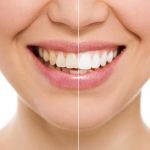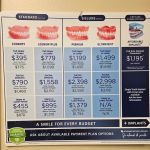How to Prevent Gum Disease Naturally: Effective Tips for Oral Health
- 1. Understanding Gum Disease and Its Causes
- 2. Early Signs of Gum Disease to Look Out For
- 3. Natural Ways to Prevent Gum Disease
- 4. How Diet Affects Gum Health
- 5. Best Oral Hygiene Practices to Prevent Gum Disease
- 6. The Importance of Professional Dental Care
1. Understanding Gum Disease and Its Causes
Gum disease, or periodontal disease, is a common condition that affects the gums, the tissues that support your teeth. It occurs when bacteria in plaque, a sticky film that forms on teeth, causes an infection in the gums. If left untreated, gum disease can lead to serious oral health issues, including tooth loss. The good news is that gum disease can often be prevented with simple lifestyle changes, proper hygiene, and a healthy diet.
The primary cause of gum disease is poor oral hygiene that encourages plaque to form on teeth, leading to inflammation of the gums. Factors like smoking, poor nutrition, genetics, and certain health conditions (like diabetes) can increase the risk of developing gum disease. Understanding these risk factors is crucial in taking proactive steps to maintain healthy gums.
2. Early Signs of Gum Disease to Look Out For
Identifying gum disease early can help prevent it from progressing into a more severe stage. Some common early signs include:
1. Red, Swollen Gums
If your gums are inflamed, red, or tender, it could be an early sign of gingivitis, the mildest form of gum disease. Gingivitis is often reversible with improved oral hygiene.
2. Bleeding Gums
Gums that bleed when you brush or floss may indicate gum disease. This is a sign that your gums are inflamed and need attention.
3. Bad Breath
Persistent bad breath or a bad taste in your mouth can be caused by gum disease. The bacteria responsible for gum disease release sulfur compounds that contribute to unpleasant odors.
4. Receding Gums
As gum disease progresses, it can cause your gums to pull away from your teeth, exposing more of the tooth or even its root. This is a more severe symptom and requires immediate dental care.
3. Natural Ways to Prevent Gum Disease
Preventing gum disease naturally involves a combination of good oral hygiene, a balanced diet, and other healthy habits. Here are some effective methods:
1. Regular Brushing and Flossing
The most important step in preventing gum disease is brushing your teeth at least twice a day and flossing daily. Brushing removes plaque from the surface of your teeth, while flossing helps eliminate plaque from between your teeth and along the gum line.
2. Using Natural Mouthwash
Using a natural mouthwash can help kill bacteria and reduce gum inflammation. Options like saltwater rinses, or mouthwash containing essential oils such as tea tree oil, are natural ways to maintain a clean mouth.
3. Oil Pulling
Oil pulling is an ancient technique where you swish oil (typically coconut oil) in your mouth for about 10-15 minutes. This helps remove bacteria, plaque, and other debris from your gums and teeth.
4. Aloe Vera Gel
Aloe vera gel is known for its anti-inflammatory properties and can be applied directly to the gums to reduce irritation and promote healing.
4. How Diet Affects Gum Health
Your diet plays a key role in maintaining healthy gums. Certain foods can promote gum disease, while others can help fight it. Here’s how your eating habits can impact your oral health:
1. Avoid Sugary Foods and Drinks
Sugary foods and beverages fuel the harmful bacteria in your mouth, leading to plaque buildup and gum disease. Reducing your intake of sugary snacks and drinks can help keep your gums healthy.
2. Increase Vitamin C Intake
Vitamin C is essential for gum health. A deficiency in vitamin C can lead to weakened gums, making them more susceptible to infections. Include citrus fruits, strawberries, bell peppers, and leafy greens in your diet to boost your vitamin C levels.
3. Eat Anti-Inflammatory Foods
Foods like turmeric, ginger, and green tea contain anti-inflammatory properties that can help reduce gum inflammation. Incorporating these into your diet can support your oral health and prevent gum disease.
5. Best Oral Hygiene Practices to Prevent Gum Disease
In addition to regular brushing and flossing, there are several oral hygiene practices that can help keep your gums healthy:
1. Use a Soft-Bristled Toothbrush
A soft-bristled toothbrush is gentler on your gums and helps prevent gum irritation. Hard-bristled brushes can damage the gums and lead to gum recession over time.
2. Brush for Two Minutes
Brushing for at least two minutes ensures that all surfaces of your teeth are thoroughly cleaned. Don’t rush your brushing routine; take your time to remove all plaque and bacteria.
3. Use Fluoride Toothpaste
Fluoride toothpaste helps strengthen your teeth and fight cavities. It also plays a role in gum health by reducing plaque buildup around the gums.
6. The Importance of Professional Dental Care
While natural prevention methods are essential, professional dental care is just as important. Regular visits to the dentist can help catch early signs of gum disease before they become severe. Dentists can provide professional cleanings that remove plaque and tartar buildup that regular brushing cannot reach. They can also offer personalized advice on how to improve your oral hygiene routine.
To ensure your gums remain healthy, make dental check-ups a part of your routine. If you’re looking for reliable dental services, visit Dentistry Toothtruth for expert care and advice on gum disease prevention.







 Dr. Robert S. King, DDS5.0 (3 review)
Dr. Robert S. King, DDS5.0 (3 review) ADVANCED SMILES PC4.0 (205 review)
ADVANCED SMILES PC4.0 (205 review) Surprise Endodontics4.0 (170 review)
Surprise Endodontics4.0 (170 review) Eden Dental, PC5.0 (1 review)
Eden Dental, PC5.0 (1 review) Canton Kids Dentistry: Dr. Farshid Nia5.0 (2 review)
Canton Kids Dentistry: Dr. Farshid Nia5.0 (2 review) Affordable Dentures & Implants4.0 (757 review)
Affordable Dentures & Implants4.0 (757 review) The Importance of Oral Health Education During Pregnancy for a Healthy Pregnancy
The Importance of Oral Health Education During Pregnancy for a Healthy Pregnancy Best Tips for Brushing Your Teeth Properly for Healthy Gums: Essential Techniques for Oral Health
Best Tips for Brushing Your Teeth Properly for Healthy Gums: Essential Techniques for Oral Health Why Skipping Dental Checkups Can Lead to Bigger Oral Health Problems
Why Skipping Dental Checkups Can Lead to Bigger Oral Health Problems Advantages of Porcelain Dental Restorations
Advantages of Porcelain Dental Restorations How Can Diabetes Cause Tooth and Gum Problems? Preventing and Managing Oral Health Issues
How Can Diabetes Cause Tooth and Gum Problems? Preventing and Managing Oral Health Issues Healthy Habits for Promoting Good Oral Health and Hygiene: Tips for a Healthy Smile
Healthy Habits for Promoting Good Oral Health and Hygiene: Tips for a Healthy Smile